Iran Seeks To Expand Violence In West Bank And Beyond
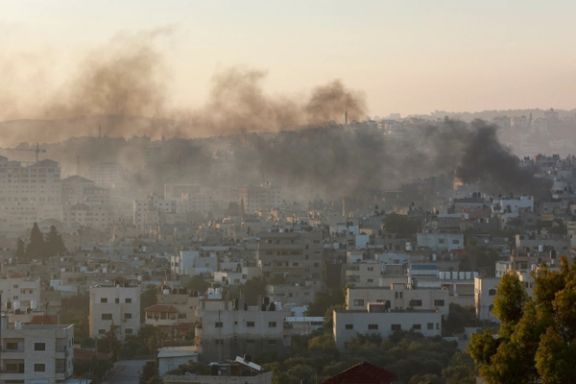
The Israeli general in charge of troops in the West Bank says Iran seeks to instigate violence and terror in the region.

The Israeli general in charge of troops in the West Bank says Iran seeks to instigate violence and terror in the region.
Yehuda Fuchs, who commanded the Gaza Division of Israel Defense Forces, told Iran International’s correspondent on Thursday that the Islamic Jihad and Hamas militia groups operate in the West Bank with the financial support of the Islamic Republic.
Undeterred, he said Israel will take action against whoever engages in terrorist acts against it no matter where they are and how complicated that would be.
Israel sent drones to strike targets in a militant stronghold in Jenin early Monday and deployed hundreds of troops in the area. The attack set off a gunbattle lasting into the morning. Israeli troops have remained inside the Jenin refugee camp.
The incursion took place two days after the Islamic Jihad's Secretary-General Ziyad al-Nakhala said that anti-Israeli actions in the West Bank reflect Iranian Supreme Leader’s directives.
However, several Israeli officials and military commanders have said that the attack is only to target the proxy militias of the Islamic Republic and that they are not there to engage with Palestinian civilians.
The operation will reportedly end in a few days following the Israeli forces discovering underground storage areas containing weapons stockpiles and the IDF arresting 120 Palestinian suspects while the Palestinian militants, who had barricaded themselves inside the mosque, apparently fled or are hiding on the outskirts of the Jenin refugee camp compound.
At least 10 Palestinian terrorists have been killed in the operation and another 30 injured.
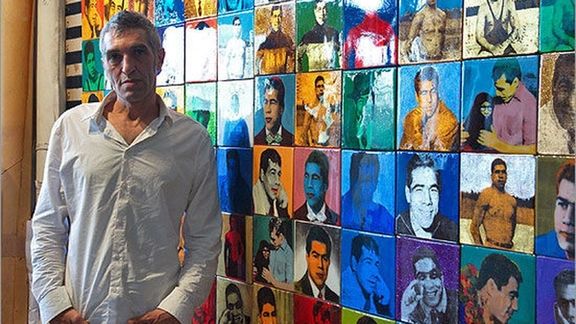
Painter Khosrow Hassanzadeh has died of alcohol poisoning in hospital in Tehran Sunday.
His tragic death is the latest in a rising tide which has claimed dozens of lives.
Hassanzadeh fell into a coma over ten days ago after having a drink apparently contaminated with poisonous methanol.
Many on social media blame the regime for Hassanzadeh and other victims’ deaths, criminalizing alcohol only driving the production into the hands of unregulated crime gangs and untrained home brews.
Since 1979, it has since caused death, blindness, and other serious injuries to hundreds from alcohol poisoning in various areas of the country every year.
According to a survey by Iran Open Data, half of all adults regularly consume alcohol despite the Islamic regime’s ban, homemade alcohol a common way to skirt the bans. In 2018, a report by the World Health Organization (WHO) ranked Iran ninth among 189 countries for alcohol consumption per capita.
The recent wave, however, appears to be much more widespread and has drawn sinister suspicions of state involvement. In Rebat Karim, a working-class town in the south of Tehran, over 40 people have been poisoned in the past month alone, six of whom died.
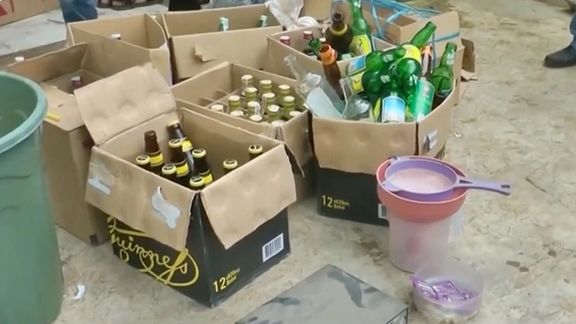
This has led to allegations that like mass schoolgirl poisonings that started in late November and spread throughout the country until the end of April, the regime itself or religious extremists protected by the regime may be involved in the poisonings.
Police Chief Ahmadreza Radan on Sunday strongly denied suspicions that the recent alcohol poisonings could have been deliberate.
Hassanzadeh was born in 1963 to a working-class Azerbaijani family who ran a fruit-selling shop in the south of the capital Tehran.
![One of Hassanzadeh’s latest collections exhibited in Tehran in 2018 was titled “[Andy] Warhol Saved Me”.](https://i.iranintl.com/images/rdk9umy0/production/97dbf6f79369b73b8a2ed158576ae13cd73c545e-902x606.jpg?rect=0,3,902,601&w=576&h=384&q=80&fit=max&auto=format)
He served as a conscript in the Iran-Iraq War (1980-1988) the experiences of which were later inspired many of his early works as did his observation of the Iranian society and its many complexities.
For years, he worked at his family’s shop while also studying art and Persian literature.
Hassanzadeh’s later works in which he used creative combinations of silk screen printing and ceramics are often characterized as ‘pop art’ and often deal with the everyday life of Iranians and sociological issues such as war, women, celebrities, traditional culture, heroes, family as well as the relation between the Iranian society and the West.
“My pictures are often to do with how east and west see one another,” Hassanzadeh told the Guardian on the phone from Tehran in May 2021.
His series of mixed-media works entitled ‘Prostitutes’ served as a commentary on the Iranian society and paid tribute to the 16 prostitutes killed by a serial killer in the religious city of Mashhad between 2000-2001.
The artists’ works were featured in solo and group exhibitions in Iran and many countries including Britain, Lebanon, the Netherlands, and the United Arab Emirates. Some of these are currently held by British Museum, Los Angeles Museum of Fine Arts, Huston Museum of Fine Arts, Agha Khan Museum in Toronto and Tehran’s Museum of Contemporary Arts.
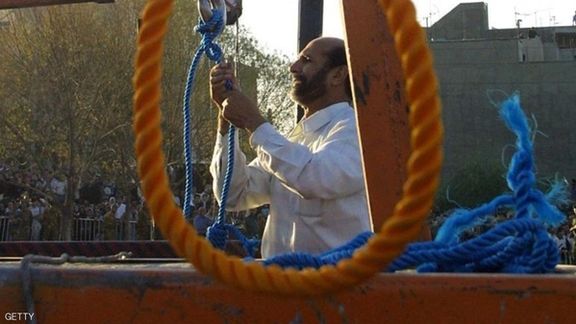
Iranian judicial official announced that three men arrested in November 2021 in southern Iran on charges of drugging and raping women were hanged on Tuesday.
The men were investigated after photos and videos of the alleged rapes began circulating on the Internet. The judiciary said that the men who were medical workers set up a fake beauty institute and drugged women with medications they stole from emergency health services.
Rape could carry the death penalty in Islamic law, but many instances of rape between acquaintances go unpunished. The Islamic penal code in Iran says that if rape takes place through deception, it is categorized as “sexual offence” but if it is carried out by force or threat of force, it is considered rape that carries the death penalty.
The law also specifically mentions intoxication of victims as the most serious category of rape with mandatory death penalty.
Court documents speak of one of the executed men setting up an “illegal beauty institute” and incapacitating some victims by injecting mild drugs before raping them and apparently taking images.
He was convicted of seven counts of rape, while one of the other suspects was convicted of four rapes and the third man for one rape.
The Judiciary in Hormozgan Province said that the men appealed their case multiple times and each time the relevant branch of the Supreme Court confirmed their conviction and the death penalty.
The hangings on Tuesday added to an estimated 354 executions so far in 2023 in Iran, the majority for narcotics convictions.

Kuwait insists a disputed oil and gas field in the Persian Gulf is only shared with Saudi Arabia despite Iran’s claims, but also invited the Islamic Republic for talks.
Kuwait’s foreign ministry said in a statement issued Monday, "The State of Kuwait and the Kingdom of Saudi Arabia... alone have exclusive rights to the natural wealth in the Al-Dorra field.”
However, it also renewed its invitation to Iran for talks over their sea borders after Tehran said last week that it was ready to start drilling in the disputed offshore field -- called Arash in Iran and Durra or Dorra by Saudi Arabia and Kuwait.
"The State of Kuwait renews its invitation to the Iranian side to start negotiations on the demarcation of the maritime borders," the Kuwaiti foreign ministry declared.
Last year, the two Arab neighboring countries agreed to jointly develop the field, which was discovered in 1967 and is estimated to have a total proven reserves of around 310 million barrels of oil and 20 trillion cubic feet of gas.
Saudi Aramco Gulf Operations Company signed a Memorandum of Understanding in December with Kuwait Gulf Oil Company (KGOC) to develop the joint gas field, Saudi state news agency (SPA) reported.
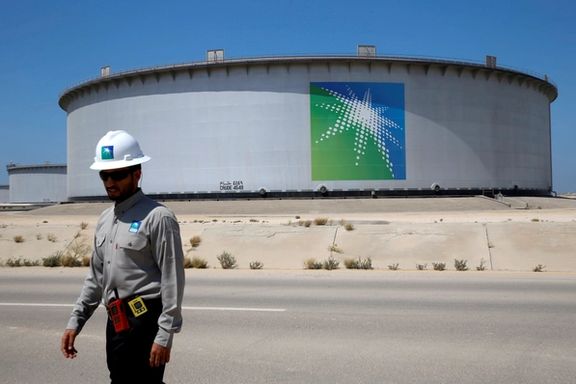
The development aims at producing 1 billion cubic feet of gas and 84,000 barrels of liquefied gas per day, according to the Kuwaiti state news agency.
In the dispute that dates back several decades, Iran claims any development without its consent breaks international laws, saying that 40 percent of the field is located in its territorial waters.
Mohsen Khojsteh-Mehr, the managing director of the National Iranian Oil Company, said last week that "there is full preparation to start drilling in the joint Arash oil field".
"Considerable resources have been allocated to the board of directors of the National Iranian Oil Company for the implementation of the development plan for this field," he said in remarks carried by Iranian state media.
The dispute over the Dorra field stretches back to the 1960s, when Iran and Kuwait each awarded an offshore concession, one to the Anglo-Iranian Oil Company, the forerunner to BP, and one to Royal Dutch Shell. The two concessions overlapped in the northern part of the field, whose recoverable reserves are estimated at some 220 billion cubic meters (seven trillion cubic feet).
Saudi Arabia is also a part of the dispute because it shares with Kuwait maritime gas and oil resources in the area.
Last week, Saudi Arabian Oil Company and TotalEnergies signed an $11 billion contract to build a petrochemicals complex near the offshore field.
Criticizing the Iranian government’s inaction vis-a-vis the project, Chairman of the Board of Directors of the Association of Iranian Oil and Gas Drilling Companies Hedayatollah Khademi told ILNA news website in Tehran on June 25, “It seems that we have surrendered the joint fields to the neighbors.”
Highlighting the fact that Riyadh has significantly developed and extracted from joint fields such as Arash/Durra, Farzad-A, Farzad-B, and Forouzan despite the fact that Iran dug the first exploratory wells in the fields., he said, “We have not done anything," accusing the Iranian government of sitting idle in the face of the encroachment.
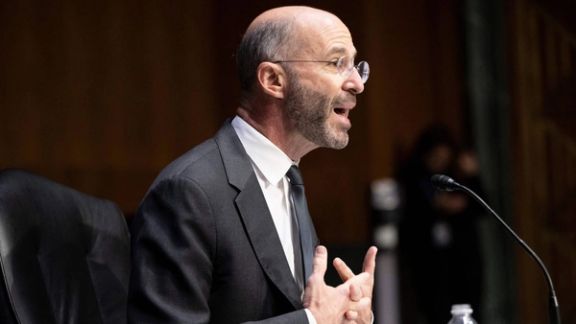
Iran was not able to utilize the presence of US envoy Robert Malley to resolve its nuclear dispute with the United States, a former Iranian diplomat said Monday.
Iran International broke the news June 29 that US special envoy Robert Malley was suspended, and his security clearance status was under investigation.
Javid Qorbanoghli, a former Iranian diplomat was quoted as saying by Entekhab website in Tehran that Malley could have helped Iran resolve the nuclear issue. He added that Malley “was on our side” and his talks during secret meetings with Iran’s UN ambassador Saeed Iravani in New York had made progress.
“Malley, as the top person in this [nuclear] file and chief [US] negotiator was on our side, and in talks with Iravani took steps to free frozen assets [in exchange] for prisoners and…”
The former diplomat said that Israel was angry and alleged that it “succeeded to separate Malley from this file,” with using one security issue.
From the time Malley was appointed as special envoy by President Joe Biden in early 2021, many observers said that he was sympathetic toward the Islamic Republic and not a suitable choice. Critics noted his role in engineering the 2015 JCPOA agreement that they believed was advantageous to Iran, not the United States.
Apparently, Malley was suspended as early as the beginning of May, but the State Department did not share the information with Congress. Lat week, several lawmakers began objecting to lack of candor by the administration.
House Foreign Affairs Committee Chairman Michael McCaul sent a letter demanding more information from the White House about Malley’s status.
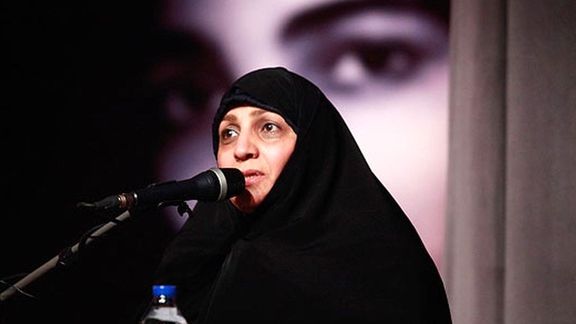
Iran’s appointment last week of Massoumeh Abad, a midwife, as ambassador to Finland has raised some eyebrows among former diplomats and commentators in Tehran.
Former Iranian diplomat Fereydoun Majlesi has said sarcastically in an interview with Didban Iran website that: "Ms. Abad can now help the pious in Finland to deliver their babies in the Islamic way."
Although Majlesi's view can be challenged for its political incorrectness, his criticism of the irrelevance of the appointment looks valid, because the appointee has no relevant experience.
Iranian ambassadors are usually selected from the ranks of career diplomats or experienced political, military figures.
Referring to Abad's career record and her diplomatic mission, Majlesi said that the Islamic Republic has no serious presence in the international arena, so it does not need a professional diplomat for such a mission."
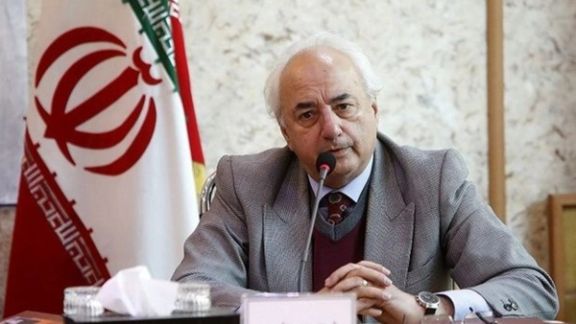
He also quipped that most probably the ambassador can be a good host at parties with Muslims in Helsinki.
It was not only Majlesi who criticized Abad's appointment. It raised a wave of uproar from Iranians on social media. Protests in this regard came even from among political supporters of the current government. The Student Basij of Imam Sadeq University, one of the most hardline political and militia organizations in Iran, wrote in a tweet June, 28: "How has she been appointed as an ambassador after serving as a Tehran City Councillor and the head of the maternity ward of Najmiyeh Hospital? Is this meant to make the role of Iranian women prominent in the international public opinion?"
On Twitter, user Naji Ali presented a document that Ms. Abad was one of those involved in the "astronomical real estate" corruption case at the Tehran Municipality under current parliament speaker Mohammad Bagher Ghalibaf who gave her some property at an extremely low price.
According to Didban Iran, Massoumeh Abad was a prisoner of war for some time during the Iran-Iraq war in the 1980s and has written her memoirs in a book entitled: "I am alive." She has a doctorate from the Shahid Beheshti University in the field of fertility and has been a member of the Tehran City Council twice.
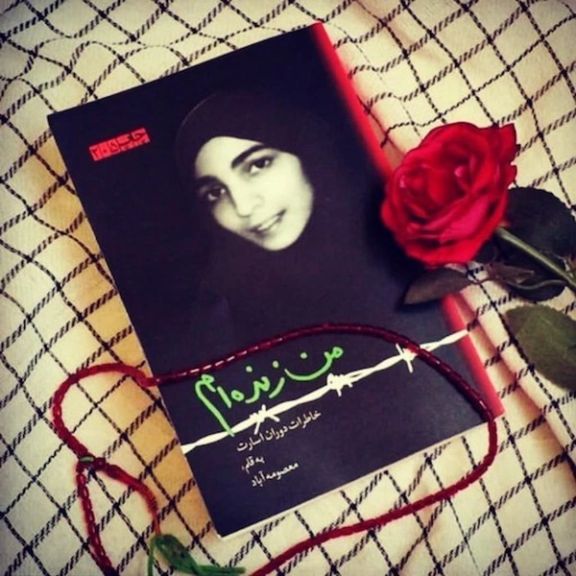
The website also confirmed that Abad was implicated in the "astronomical real estate" case, which became public in 2017 as part of a huge corruption case involving the mayors’ closest aides who were Revolutionary Guard officers. Eventually, two top people were convicted by a military tribunal. It was reported at the time in local media that embezzlement and give away of city property totalled at least five billion dollars.
The website added that now that President Ebrahim Raisi has appointed several Imam Sadeq University (a dubious religious university) alumni as his cabinet ministers, it is not strange to appoint a midwife as an ambassador.
Media reports say Abad is Iran's fifth female ambassador since the 1979 revolution. Previously, Marziyeh Afkham, a career diplomat and a former foreign ministry spokesperson was appointed ambassador to Malaysia, and Afsaneh Nadipour, Forouzandeh Vadiati, and Homeyra Rigi were appointed as ambassadors in Denmark, Finland and Brunei.
Former diplomat Majlesi observed that "When the circle of government insiders is getting increasingly smaller, then they do not have any real expert to appoint to key posts."
He added that Iran has been buying expensive buildings abroad for a long time to use as premises for embassies and someone like Ms. Abad can certainly attend to the building and keep it in a good shape.
Social media users have pointed out that Abad's husband, Sayyed Safar Salehi was previously appointed to a mission to forge oil deals in the UK. Others on social media said that the reason for Abad's extra-ordinary promotion is that she was the gynaecologist of one of Supreme Leader Ali Khamenei's daughters-in-law.